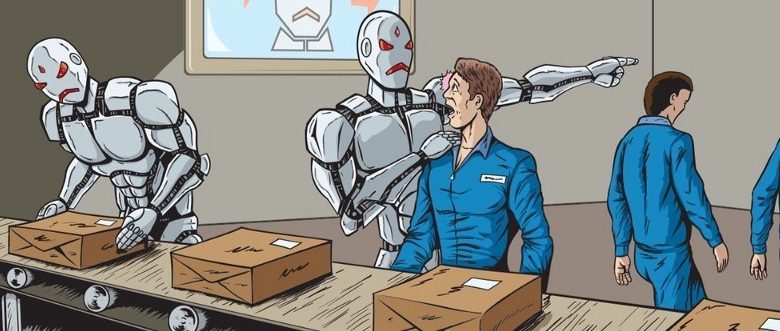Job Markets Unaffected by AI
In an age dominated by technological advancements, the impact of artificial intelligence (AI) on various job sectors cannot be ignored. However, there are several careers that boast promising future prospects, remaining resilient to the influence of AI. This article explores job markets that are likely to thrive, providing individuals with a secure and enduring professional path.
- Healthcare:
The healthcare sector continues to stand strong as an
indispensable part of society. With an aging population and increasing health
complexities, there is a growing demand for healthcare professionals. Jobs such
as doctors, nurses, and allied health professionals require human empathy,
critical thinking, and a level of emotional intelligence that AI currently
cannot replicate.
- Environmental
Sciences and Renewable Energy:
As the world grapples with environmental challenges, careers
in environmental sciences and renewable energy are gaining prominence. Jobs
related to sustainable practices, renewable energy development, and
environmental conservation are not only fulfilling but also critical for the
future of the planet. These roles demand a human touch, innovation, and
problem-solving skills that AI lacks.
- Creative
Arts and Design:
The realm of creative arts and design remains uniquely
human. Whether it's graphic design, content creation, or artistic expression,
the human touch and creativity are irreplaceable. While AI can assist in
certain aspects, the essence of artistic creation and emotional connection is a
domain where human talent will continue to shine.
- Education
and Training:
Despite the integration of technology in education, the role
of educators and trainers remains pivotal. The ability to inspire, mentor, and
guide students through their learning journey is a distinctly human skill.
Educational professionals who can adapt to evolving technologies while
providing a holistic learning experience will be in high demand.
- Human
Resources and People Management:
The nuances of human interactions and the intricacies of
workplace dynamics require a level of understanding and empathy that AI
currently lacks. Human resources professionals and managers who can navigate
complex interpersonal relationships, foster team collaboration, and lead with
emotional intelligence will be invaluable assets to organizations.
- Skilled
Trades:
Professions in skilled trades, such as plumbing, carpentry,
and electrician work, are indispensable to society and less susceptible to
automation. These roles often require a hands-on approach and a deep
understanding of physical systems, making them less likely to be replaced by AI
in the near future.
- Psychology
and Counseling:
- As
mental health awareness grows, the demand for psychologists, counselors,
and therapists is on the rise. These professions require deep empathy,
active listening, and personalized human interaction, making them less
susceptible to automation.
- Cybersecurity:
- With
the increasing frequency of cyber threats, cybersecurity experts are in
high demand. The ability to analyze complex security issues, develop
strategies, and respond to evolving cyber threats requires a human touch
that AI cannot fully replicate.
- Agriculture
and Farming:
- Agriculture
remains a vital industry, and farmers, agronomists, and agricultural
scientists play a crucial role in ensuring food security. The hands-on
nature of farming, coupled with the need for adaptability and
problem-solving, makes these roles less susceptible to automation.
- Physical
Therapy:
- Physical
therapists work closely with patients to improve mobility and manage
pain. The hands-on, personalized nature of physical therapy requires a
human touch, and the ability to tailor treatment plans to individual
needs makes this profession resistant to automation.
- Social
Work:
- Social
workers address societal issues, providing support to individuals and
communities. The empathy, advocacy, and personalized care involved in
social work make it a profession that relies heavily on human connection,
making it less likely to be automated.
- Sales
and Marketing:
- While
AI can assist in data analysis and customer insights, the human touch is
crucial in sales and marketing. Building relationships, understanding
customer needs, and creative problem-solving are skills that remain
uniquely human in the business world.
- Event
Planning:
- The
dynamic and creative nature of event planning requires a personal touch.
Event planners bring together various elements to create memorable
experiences, and the ability to understand clients' preferences and
deliver customized events is a skill that AI currently lacks.
- Fitness
Training and Wellness Coaching:
- In
the wellness industry, fitness trainers and wellness coaches provide
personalized guidance to individuals. The motivational and supportive
aspects of these roles require human connection and understanding, making
them less susceptible to automation.
- Language
Translation and Interpretation:
- Despite
advances in machine translation, the nuances of language, cultural
context, and the ability to convey emotions accurately make human
translators and interpreters essential, especially in diplomatic and
cross-cultural settings.
Conclusion:
While AI continues to reshape the employment landscape,
there exist several career paths that offer a sense of security and
future-proofing against automation. Embracing careers in healthcare,
environmental sciences, creative arts, education, human resources, and skilled
trades allows individuals to not only thrive in their professions but also
contribute meaningfully to society. As the job market evolves, focusing on
these human-centric roles ensures a resilient and fulfilling career trajectory.
FAQ
Q1: Why focus on "Future-Proof Careers Unaffected by AI"?
A1: As AI impacts various job sectors, it's essential to explore
careers resilient to automation, ensuring long-term job security and
fulfillment.
Q2: Which sectors remain strong against AI influence?
A2: Sectors like healthcare, environmental sciences, creative arts, education,
human resources, skilled trades, psychology, cybersecurity, and agriculture
show resilience to AI.
Q3: Why are healthcare and skilled trades considered future-proof?
A3: Healthcare demands human empathy, and skilled trades
involve hands-on expertise, making them less susceptible to automation.

Comments
Post a Comment